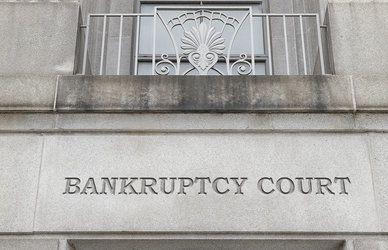By declaring bankruptcy, you will temporarily halt the foreclosure process. However, secured debts such as mortgages cannot be discharged by the courts. During the actual bankruptcy process, your lender cannot so much as attempt to collect debt; however, once your bankruptcy is complete, you will once again be responsible for your mortgage payments. For homeowners who can reasonably expect to catch up with their mortgage payments after the bankruptcy process is complete, bankruptcy might make sense. Chapter 7 bankruptcy will at least delay the foreclosure process, buying time for homeowners while potentially resulting in the discharge of many of their debts, possibly including their mortgage. Homeowners whose inability to repay their debts is strictly temporary may prefer to file for Chapter 13 bankruptcy, in which debts are reorganized rather than immediately discharged. It is important to keep in mind that lenders in both scenarios will regain the right to foreclose on the property once the bankruptcy has been finalized; however, many homeowners are able to work with their lenders to keep their homes. http://www.elitehomeoffer.com/blog/
-
- Categories
- Architecture
- Art
- Cars & Motorcycles
- Design
- DIY & Crafts
- Education
- Film, Music & Books
- Fitness
- Food & Drink
- Gardening
- Geek
- Hair & Beauty
- History
- Holidays & Events
- Home Decor
- Humor
- Kids
- Women's Fashion
- Men's Fashion
- Leisure & Outdoors
- People
- Photography
- Products
- Science & Nature
- Sports
- Technology
- Travel & Places
- Weddings
- Other
- Property
- Animal
- Celebrities
- Health & Fitness
- Illustrations & Posters
- Quotes
- Services
- Renovation
- Home Building
- Business
- Toys
- New
- Popular
- Gifts
- Videos
- Help / Contact Us
- Terms & Privacy
- What is InterestPin


